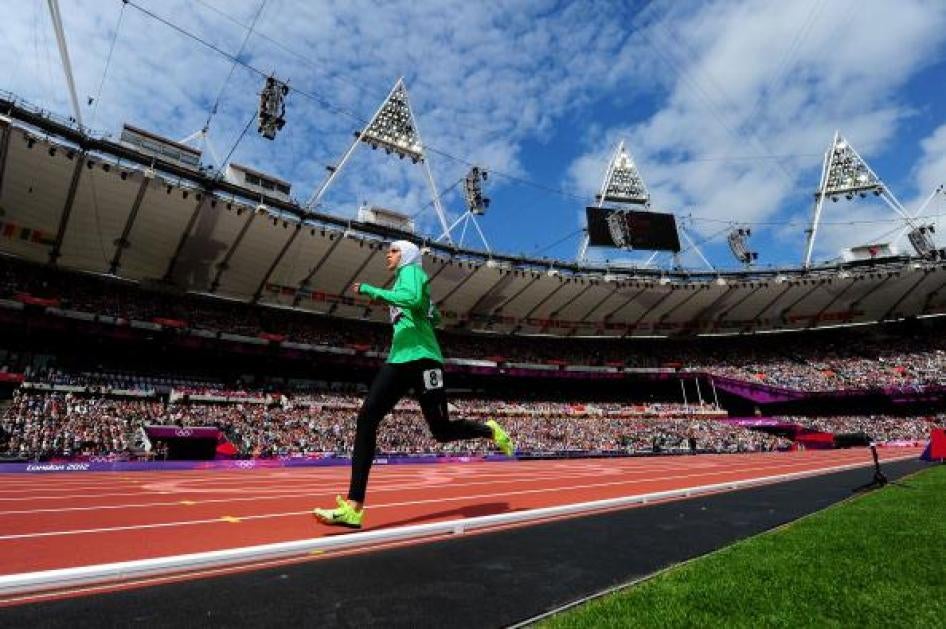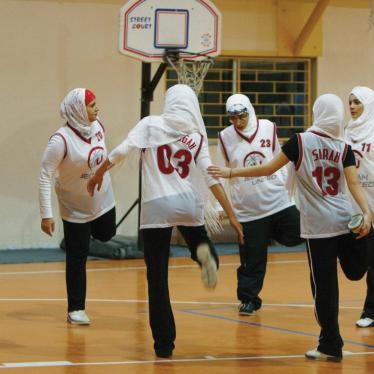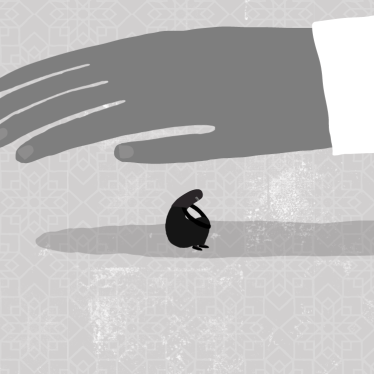This week means “back-to-school” for millions of students across the globe. In Saudi Arabia, where the new schoolyear begins on September 10, girls have a particular reason to rejoice. For many decades, Saudi women and girls have been effectively deprived of their right to play sports in schools — or even to exercise. Thanks to reforms made over the summer, for the first time, Saudi girls will be able to enjoy this fundamental right.
In July, the Saudi government announced it will allow physical education for girls in state schools beginning with this school year. This decision, long overdue, will have long-term health, economic, and education benefits for the kingdom’s 13 million women and girls. Other recent reforms include Saudi Princess Reema bint Bandar al Saud’s promotion as the General Authority for Sports’ first female vice president, and her announcement that women’s gyms and fitness centers would be legal this year.
As with driving, sports and exercise have long been off-limits to women in Saudi Arabia — including even watching sports in a public stadium. While the recent steps deserve praise, many barriers remain.
There are gaps in understanding how the new policies will work in practice. The Education Ministry said that physical education classes for girls will be introduced “gradually” and “in accordance to Islamic Shariah regulations.” No further details were offered, including whether classes are to be mandatory, as they are for boys. Also, with sports being off-limits to women for so long, the country has few qualified trainers or sports instructors. Physical spaces for women to exercise or play sports are virtually non-existent.
Saudi Arabia has more than a hundred national or international sports federations for men in sports such as soccer, volleyball and basketball, but still no federations for women or girls. Some religious leaders even equated girls taking part in sports to taking steps of the devil. Moreover, women are still banned from driving in Saudi Arabia, an obvious obstacle to taking part in team training or sports events.
Although many Saudi women have started their own sports initiatives, they confront barriers including the country’s male guardianship system, that can keep them sidelined. Indeed, the chief hurdle to women and girls playing sports in and out of schools is the male guardianship system, which requires every Saudi woman to have a male guardian (a father, brother, husband, or even a son), who must give his permission for vital decisions throughout a woman’s life, including applying for a passport, studying abroad, getting married and even exiting prison.
There is no doubt that the lack of access to sport and exercise has contributed to a serious health situation for women. Saudi women are disproportionately affected by cardiovascular diseases and obesity, compared with their male counterparts. A study by the Saudi Health Ministry found that 44 percent of women are obese, compared with 26 percent of men.
While Saudi Vision 2030, a new national economic action plan, describes “developing women’s talent and capacity to contribute to the economy and society,” the guardianship system continues to impede women’s ability to participate fully in the workforce, with some employers still requiring guardian permission for women to work, and companies required to segregate male and female employees and enforce a strict female dress code.
The global sports industry, from sportswear to fitness centers to ticket sales, has been a major economic driver. If Saudi Arabia were to get rid of barriers to women entering the workforce, and to effectively incorporate women and girls into its sports infrastructure and planning, it is likely that many economic benefits would soon follow.
As with exercise and gym classes for girls, the guardianship system itself is seeing some progress: In May, King Salman issued a decree ordering government agencies to provide women access to state services without guardian permission, so long as existing regulations do not require it. However, Saudi women are still waiting for delivery of these promised reforms.
Sports is at heart about the same rules applying to all, on a level playing field. Ending the ban on sports in schools for girls is a major step forward — especially if it leads to removing all remaining hurdles to health and basic human rights for girls and women in the kingdom.
-------------
Minky Worden is director of global initiatives at Human Rights Watch. Follow her on Twitter @MinkysHighjinks .. In April, Worden appeared onstage at the Women in the World New York Summit alongside Raha Moharrak, a Saudi mountain climber who summited Mount Everest. Watch video of that full interview below.










